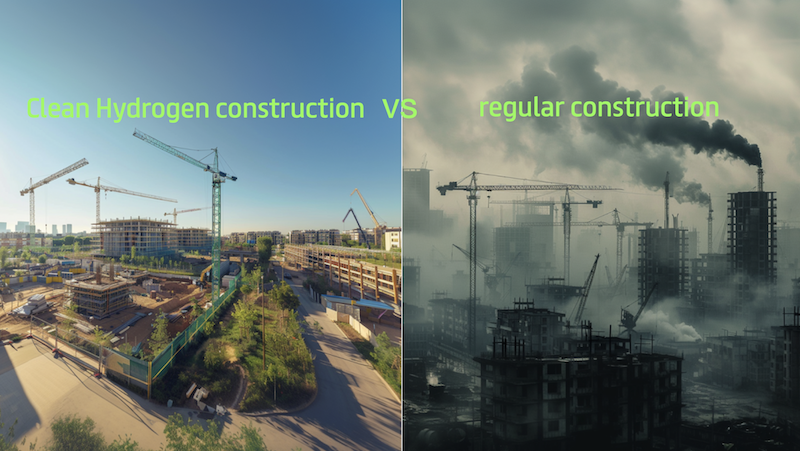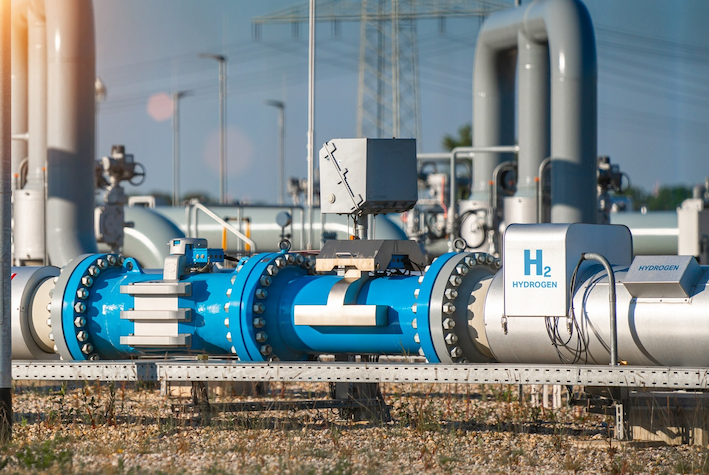As Boris Johnson commits to increasingly ambitious targets for lowering UK emissions, and as the frosty mornings continue well into early Spring, it’s no surprise that the glamorous subject of boilers has bubbled up to the surface of the national agenda.
The UK has one of the most expansive gas networks in the world, with its massive pipeline infrastructure (worth an estimated £28 billion) pumping carbon-burning gas into 85% of British homes for our heating and cooking pleasure. It’s big business, and one that is shortly to undergo a big overhaul, in order to get in line with the climate emergency.
Two emissions-lowering solutions for heating our homes are in play, hydrogen boilers and electric heat pumps. Here at Ryze Hydrogen, just as we advocate both hydrogen and electric vehicles to decarbonise transport, we support the transition to hydrogen boilers, and where required heat pumps should be used also. There is of course a cost attached to the change, although a hydrogen boiler costs the same as existing carbon-burning boilers. So how we transition and who foots the bill must be a priority when the Government’s upcoming Hydrogen Strategy is released here in the UK.
Investment in hydrogen for home heating is well underway following the successful construction and operation of two hydrogen-powered homes in Gateshead. Since then a much bigger construction programme of 300 hydrogen powered homes in Fife has got underway, and will be operational in 2022. The homes will replace traditional gas with hydrogen, in effect making their heating zero-emission.

Boris Johnson’s government will decree a mandated 78% reduction in UK CO2 emissions before 2035. Hence the urgency to switch to cleaner hydrogen boiler fuel for UK homes.
Visionary players in the gas industry such as Cadent have been successfully trialling blending hydrogen with regular gas to reduce emissions. At Keele University, Staffordshire, 100 staff homes and 30 university buildings have all enjoyed the warmth produced by such a blend. As long as hydrogen accounts for no more than 20% of the gas mix then the boiler does not need to be upgraded. These are significant steps in the emissions-lowering hydrogen direction.
Adam Worthington, 42, works for Keele University as part of the estates team. He lives in a four-bedroom house on campus with his wife and daughter. “We didn’t notice any dierence. They came in to check our boiler and cooker before it started, but other than that we didn’t have to do anything. If the university hadn’t told us it was happening we wouldn’t have known.” said Worthington.
Opposers of the gas blend operation question what the point is, seeing as we need to get to net zero why not invest in whatever is required in order to switch 100% to zero-emission hydrogen, instead of putting a blend in our pipes viewed as ‘neither Arthur nor Martha.’
Gas and oil companies have both been backing hydrogen recently. It’s an environmentally friendly fuel, and government are interested because it has the potential to extend the life of the North Sea gas fields, bringing investment to industrial parts of the northeast.
Edinburgh University , in a recent study, calculated that there was space in the old North Sea gas fields to store 40 times more hydrogen than would be needed to balance a fully decarbonised UK economy. This, they argue, could allow the UK to become a key supplier of hydrogen to Europe.

Edinburgh University, in a recent study, calculated that there was space in the old North Sea gas fields to store 40 times more hydrogen than would be needed to balance a fully decarbonised UK economy.
Hydrogen is regularly lauded by its fans for being the most abundant element in the universe. This is true, but questionable as to its relevance in terms of reducing our emissions. In order for us to gather and store hydrogen for use as fuel it needs to be manufactured first. Sadly we can’t just pluck it out of thin air with a fishing net. The manufacturing of hydrogen has historically been done by capturing it as a by-product from other carbon-burning processes. The big cry there if course is why would you encourage this when the focus is on lowering-emissions? Hence why the hero of the day is ‘green hydrogen’. This is produced through the process of electrolysis, a simple matter of putting renewable energy (from wind or solar) into water, which is then split into its component parts of hydrogen and oxygen. That resulting hydrogen is the one that takes the green medal.
Experts say it’s not how we’re kept warm that matters, just as long as we’re kept warm.
But the cold chill of shame is descending on all of us who watch our gas or oil guzzling boilers emitting CO2 into the atmosphere each day, and with Boris Johnson’s new target of a 78% reduction in emissions within the next 15 years, it’s time for our country to start seriously investing in the switch to hydrogen boilers.






